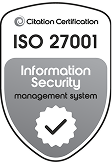What is ResearchOps?
Over the last several years, conferences and communities have been forming around the topic of Research Operations (ResearchOps). Much has been written already, and much is yet to be figured out. Working definitions seem to align around defining ResearchOps as a sub specialization of DesignOps, focused on user research. It spans research activities such as planning, fielding, analyzing, sharing and managing the research outputs and results.
I think of ResearchOps as the industrialization of knowledge gathering, or enabling an organization to be industrially curious, and then actually taking pains to remember what it learns.
Why has ResearchOps emerged?
ResearchOps, it seems, is emerging in response to the generic problem of scaling business capability. User Research has always been the runt of the design litter, continually trying to catch up with its bigger siblings: UX design (exponentially growing with digitization) and the various core business departments whose needs keep changing with the whims of market realities.
So it seems it was only a matter of time before ResearchOps emerged. We have been trying to Taylorize (is that even a word? Can I coin it if not?) just about everything since Scientific Management exploded on the scene in the 1880’s (I wrote about this fascinating history of our collective obsession with efficiency a few years ago in a series of articles here).
A few analogous examples:
- DevOps tries to scale and shorten software development times.
- DataOps operationalizes data analytics.
- DesignOps looks to scale and systematize Design.
- SalesOps has been improving sales way before Glengarry Glen Ross was chanting “Always. Be. Closing.” (Alec Baldwin may or may not have drawn on that character for his brilliantly funny depiction of a certain president on SNL).
- MarketOps, while I don’t think is a term, has really been around in the form of market research and business intelligence for decades.
See a pattern? I think of ResearchOps as essentially an organizational concept that tries to better orchestrate a set of processes (in this case around research) that people do in order to scale, multiply and unlock more of its value.
Research at scale, and at speed, is very difficult to do
It is also very difficult to build institutional knowledge and manage it. This challenge has been emerging for a long time. Yet it is erupting now, when our level of problem complexity is rising, need for speed is increasing and companies have even more of a burning need to truly understand people better to respond to changing needs and contexts.
The need has increased in our world for ways to systemically derive deep, authentic and impactful human insights that help organizations address complex business problems faster. Perhaps in real time; perhaps one day predicting what is needed with some amount of accuracy. And we won’t get there with only the approaches and methods that got us here.
Artificial intelligence + human intelligence
For this challenge we need a force multiplier to augment human intelligence. We believe that multiplier is using artificial intelligence together with human intelligence. It is no accident that insights providers like The Evolved Group are emerging simultaneously as ResearchOps to provide new methods and processes that will help enable this vision to become real. But we need to enable organisations to design and build the processes and flexible knowledge flows – adapted to the unique needs of that organization. Arguably we have not spent as much time designing organizations as we have the products and services that make us money, but that is what is so amazingly beautiful about what is happening with these emerging communities. It’s happening in real time, before our eyes.
It’s certainly not perfect, and there is much to be figured out. There are whole sets of capabilities that are lacking such as Data Science that need to be integrated into these processes. Right now, many companies do not have these capabilities in house to do some of this heavy lifting, but it is starting to change. We see a lot of this work being outsourced (to us) for the moment – but we believe this thinking and expertise will eventually migrate in house. We are also seeing a deep need to orchestrate these skills with other expertise to curate and design the next generation ResearchOps. It’s exciting to see what is happening in these communities and how collectively these groups are, in essence, rewiring and designing the 21 century ResearchOps that companies need: building fact-based decision support and strategic insights on demand.
Find out more
To learn more about Evolved and our offerings, simply submit an enquiry or message me on LinkedIn.










